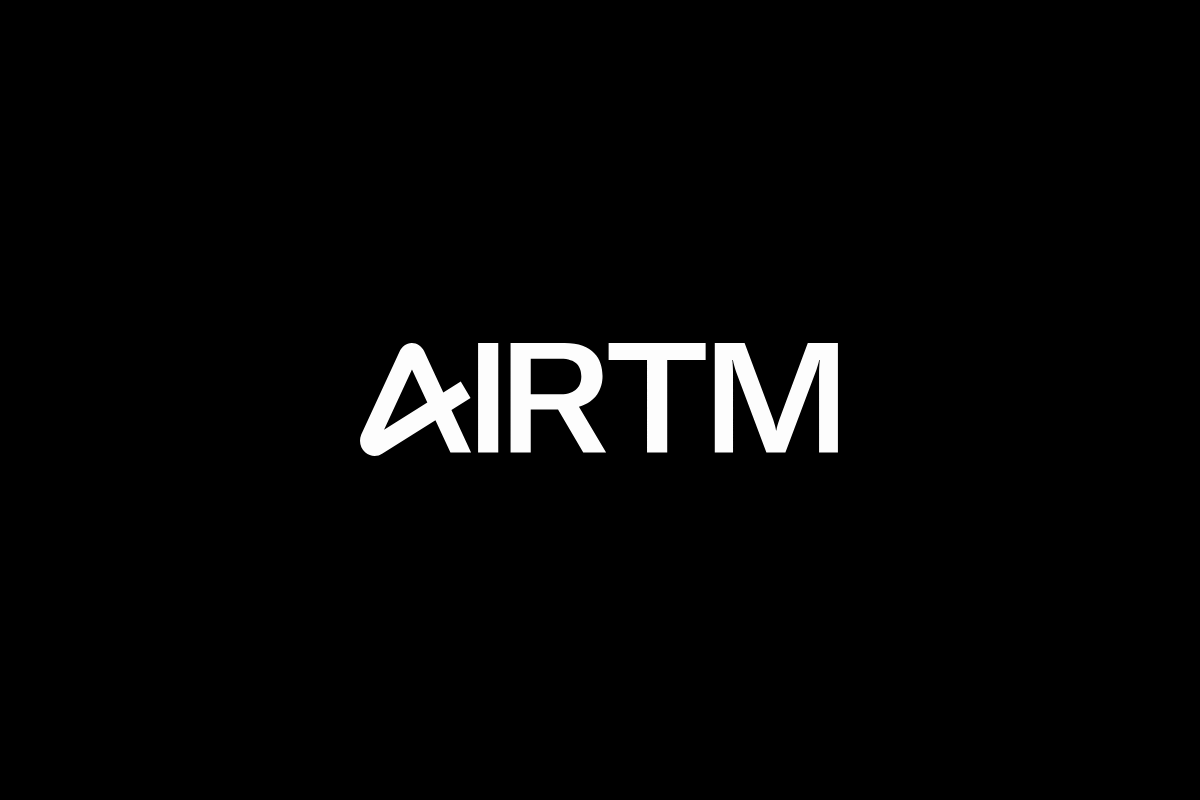Fintech
Horizon CEO Brian Collins to Speak at EmTech Investment Meeting 2020 in Davos During World Economic Forum

New York, NY, Jan. 21, 2020 (GLOBE NEWSWIRE) — via NEWMEDIAWIRE — Horizon Globex US, LLC (Horizon), the Blockchain-as-a-Service solutions company, today announced its CEO Brian Collins will be speaking at the Emerging Technologies Investment Meeting (EmTech Investment Meeting 2020), a forum for professional investors and traders who are interested in impact investments and emerging technologies. The event takes place January 20-22nd in Davos, Switzerland during the World Economic Forum. Brian will be hosting a Fireside Chat called The Hunt for Liquidity: Digital Assets 2020, providing his expertise on the challenges and opportunities surrounding digital asset liquidity in the coming year alongside merchant banker and PALcapital CEO, James Haft.
The EmTech Investment Meeting 2020 discusses investment opportunities in technologies such as Clean Energy, Blockchain, FinTech, AI, Healthcare, Biotech, and more. The meeting includes prominent investment funds and family offices like i(x) Investments, IMAS Foundation, Private Equity & Infrastructure, MN (AUM 160bn), Willis Towers Watson, SUSI Partners AG and other institutional investors. Additional speakers include Ciara Sun, Head of Global Business at Huobi Group; Rupertus Rothenhaeuser, Chief Clients & Products Officer at SIX Digital Exchange; Lennix Lai, Financial Market Director at OKEx; and the Schaffhausen Institute of Technology.
Brian is an experienced public and private company CEO. He founded Horizon Globex in 2010, which was listed on Nasdaq in 2012. The Company’s end-to-end blockchain technology suite was completed in 2019 and its compliance and trading technology is being licensed to entities around the world. From 1999-2010, Brian was CEO of Abbey Technology in Switzerland specializing in the design of trading software for Swiss banks. Prior to this, Brian worked for Credit Suisse in Zürich designing and building proprietary equity trading solutions.
“Attracting mainstream traders to a digital-asset secondary marketplace requires frictionless on-boarding and trading,” says Horizon CEO Brian Collins. “I’m honored to share insights on what’s to come surrounding digital asset liquidity in 2020 and help shed light on the tools and regulatory framework in place to usher in this new wave of investing and trading.”
This news follows Horizon’s recently launched Series A funding round which is currently accepting investments. Qualified investors can become shareholders in Horizon’s proprietary blockchain trading and compliance software business being licensed to entities around the globe. To learn more and to access Horizon’s investment materials, visit https://offering.horizon-globex.com/.
To learn more or connect with Brian Collins, visit his LinkedIn or reach the team at [email protected].
About Horizon:
Horizon offers a suite of integrated blockchain software applications for compliant issuance through secondary trading of digital securities. Truly a compliance-first business, our solutions combine Wall Street and Silicon Valley to power the next generation of exchanges and securities offerings in the U.S. and globally.
Current product solutions include asset tokenization through Tokenetics (tokenetics.com); a white-label KYC smartphone app to onboard and verify investors through KYCware (kycware.com); anti-money laundering screening against a database of global sanctions, watchlists, & PEPs through AMLcop (amlcop.com); transfer agent custody tools through (custodyware.com), and an advanced retail trading app for compliant secondary trading on affiliated digital securities marketplaces through Open Order Book (openorderbook.com). All software applications can be utilized independently or integrated with one another. Learn more at https://horizon-globex.com/.
Press Contact: Vanessa Malone
(805) 637-1963
Disclaimers:
This press release may include ”forward-looking statements.” To the extent that the information presented in this press release discusses financial projections, information, or expectations about our business plans, results of operations, products or markets, or otherwise makes statements about future events, such statements are forward-looking. Such forward-looking statements can be identified by the use of words such as ”should,” ”may,” ”intends,” ”anticipates,” ”believes,” ”estimates,” ”projects,” ”forecasts,” ”expects,” ”plans,” and ”proposes.” Although we believe that the expectations reflected in these forward-looking statements are based on reasonable assumptions, there are a number of risks and uncertainties that could cause actual results to differ materially from such forward-looking statements. You are urged to carefully review and consider any cautionary statements and other disclosures, including the statements made under the heading “Risk Factors” and elsewhere in the offering statement that we will file with the SEC. Forward-looking statements speak only as of the date of the document in which they are contained, and GlobexUS Holdings Corp. does not undertake any duty to update any forward-looking statements except as may be required by law.
THIS PRESS RELEASE SHALL NOT CONSTITUTE AN OFFER TO SELL SECURITIES OR THE SOLICITATION OF AN OFFER TO BUY SECURITIES IN ANY JURISDICTION WHERE SUCH OFFER OR SOLICITATION IS NOT PERMITTED.

Fintech
Fintech Pulse: Your Daily Industry Brief (Chime, ZBD, MiCA)

As we close out 2024, the fintech industry continues to deliver headlines that underscore its dynamism and innovation. From IPO aspirations to groundbreaking regulatory milestones, today’s updates highlight the transformative power of fintech partnerships, regulatory evolution, and disruptive technologies. Here’s what you need to know.
Chime’s Quiet Step Toward Public Markets
Chime, the U.S.-based financial technology startup best known for its digital banking services, has taken a significant step by filing confidential paperwork for an initial public offering (IPO). As one of the most valuable private fintechs in the U.S., Chime’s move could potentially signal a renewed appetite for fintech IPOs in a market that has been cautious following fluctuating valuations across the tech sector.
With a valuation that reportedly exceeded $25 billion in its last funding round, Chime’s IPO could set a new benchmark for the industry. Observers note that its strong customer base and revenue growth may make it an appealing choice for investors seeking to capitalize on the digital banking boom. However, the timing and success of the IPO will depend on broader market conditions and the regulatory landscape.
Source: Bloomberg
ZBD’s Pioneering Achievement: EU MiCA License Approval
ZBD, a fintech company specializing in Bitcoin Lightning network solutions, has made history by becoming the first to secure an EU MiCA (Markets in Crypto-Assets Regulation) license. This landmark approval by the Dutch regulator positions ZBD at the forefront of compliant crypto-fintech operations in Europe.
MiCA, which aims to harmonize the regulatory framework for crypto-assets across the EU, has been a focal point for industry players aiming to establish legitimacy and expand their offerings. ZBD’s achievement not only validates its operational rigor but also sets a precedent for other fintech firms navigating the evolving regulatory landscape.
Industry insiders view this as a strategic advantage for ZBD as it broadens its footprint in Europe. By leveraging its regulatory approval, the company can accelerate its product deployment and establish trust with institutional and retail users alike.
Source: Coindesk, PR Newswire
The Fintech-Credit Union Synergy: A Blueprint for Innovation
The convergence of fintechs and credit unions continues to reshape the financial services ecosystem. Collaborative initiatives, such as the one highlighted in the recent partnership between fintech innovators and credit unions, are proving to be a potent force in delivering tailored financial solutions.
This “dream team” approach allows credit unions to leverage fintech’s technological expertise while maintaining their community-focused ethos. Key areas of collaboration include digital payments, personalized financial management tools, and enhanced loan processing capabilities. These partnerships not only enhance member engagement but also enable credit unions to remain competitive in an increasingly digital-first financial environment.
Industry analysts emphasize that such collaborations underscore a broader trend of traditional financial institutions embracing fintech-driven solutions to bridge service gaps and foster innovation.
Source: PYMNTS
Tackling Student Loan Debt: A Fintech’s Mission
Student loan debt remains a pressing issue for millions of Americans, and a Rochester-based fintech aims to offer relief through its cloud-based platform. This innovative solution is designed to simplify loan management and provide borrowers with actionable insights to reduce their debt burden.
The platform’s features include repayment optimization tools, personalized financial education, and seamless integration with loan servicers. By addressing the complexities of student loan management, this fintech is empowering borrowers to make informed decisions and achieve financial stability.
As the student loan crisis continues to evolve, solutions like this highlight the critical role fintech can play in addressing systemic financial challenges while fostering financial literacy and inclusion.
Source: RBJ
Industry Implications and Takeaways
Today’s updates underscore several key themes shaping the fintech landscape:
- Regulatory Milestones: ZBD’s MiCA license approval exemplifies the importance of regulatory compliance in unlocking growth opportunities.
- Strategic Partnerships: The collaboration between fintechs and credit unions demonstrates the value of combining technological innovation with traditional financial models to drive customer-centric solutions.
- Market Opportunities: Chime’s IPO move reflects a potential revival in fintech public offerings, signaling confidence in the sector’s long-term prospects.
- Social Impact: Fintech’s ability to tackle systemic issues, such as student loan debt, showcases its role as a force for positive change.
The post Fintech Pulse: Your Daily Industry Brief (Chime, ZBD, MiCA) appeared first on News, Events, Advertising Options.
Fintech
SPAYZ.io prepares for iFX EXPO Dubai 2025

Leading global payments platform SPAYZ.io has confirmed it will be attending iFX EXPO Dubai 2025 on 14 to 16 January. Exhibiting at Stand 64 at Trade Centre Dubai, SPAYZ.io’s team of professionals will be on hand providing live demonstrations of its renowned payment services for payment providers. Attendees will also receive exclusive insight into SPAYZ.io’s plans for 2025 alongside early early access to its upcoming plans for the new year.
SPAYZ.io delivers a host of payment solutions that leverage the latest technological innovations and open access to the fastest growing emerging markets across Africa, Europe and Asia. Over the past year, there has been huge demand for its Open Banking and local payment method services, alongside bank transfers, mass payouts, online banking and e-wallets.
Yana Thakurta, Head of Business Development at SPAYZ.io commented: “We look forward to once again participating at iFX Dubai to expand our network of partners and clients. It’s a fantastic way to kick off the year, connecting with thousands of industry leaders from FOREX platforms to trading companies, and everything in between.
“Our key goal for iFX Dubai EXPO 2025 is to expand our portfolio of solutions and geographies. We’re using this as an opportunity to partner with like-minded entities who share our ambition to provide payment solutions that are truly global.”
Come meet SPAYZ.io’s team at the Trade Centre Dubai at Stand 64. You can also book a meeting slot with a member of a team.
The post SPAYZ.io prepares for iFX EXPO Dubai 2025 appeared first on News, Events, Advertising Options.
Fintech
Airtm Enhances Its Board of Directors with Two Strategic Appointments

Airtm, the most connected digital dollar account in the world, is proud to announce the addition of two distinguished industry leaders to its Board of Directors: Rafael de la Vega, Global SVP of Partnerships at Auctane, and Shivani Siroya, CEO & Founder of Tala. These appointments reflect Airtm’s commitment to innovation and financial inclusion as the company enters its next phase of growth.
“We are thrilled to welcome Rafael and Shivani to Airtm’s Board of Directors,” said Ruben Galindo Steckel, Co-founder and CEO of Airtm. “Their unique perspectives and proven track records will be invaluable as we continue scaling our platform to empower individuals and businesses in emerging markets. Together, we’ll push the boundaries of financial inclusion and innovation to create a more connected and equitable global economy. Rafael and Shivani bring a wealth of experience and strategic insight that will strengthen Airtm’s mission to connect emerging economies with the global market.”
Rafael de la Vega, a seasoned leader in fintech global partnerships and technology innovation, is currently the Global SVP of Partnerships at Auctane. With a proven track record of delivering scalable, impactful solutions at the intersection of fintech, innovation, and commerce, Rafael’s expertise will be pivotal as Airtm continues to grow. “Airtm has built a platform that breaks down barriers and opens up opportunities for people in emerging economies to connect to global markets. I am excited to contribute to its growth and help further its mission of fostering financial inclusion on a global scale,” said Rafael.
Shivani Siroya, CEO and Founder of Tala, is a pioneer in financial technology, renowned for empowering underserved communities through access to credit and essential financial tools. Her leadership in leveraging data-driven innovation aligns seamlessly with Airtm’s vision of creating more equitable financial opportunities. “Empowering underserved communities has always been at the core of my work, and Airtm’s mission resonates deeply with me. I’m thrilled to join the Board and work alongside such a dynamic team to expand access to financial tools that truly make a difference in people’s lives,” said Shivani.
The post Airtm Enhances Its Board of Directors with Two Strategic Appointments appeared first on News, Events, Advertising Options.
-

 Fintech7 days ago
Fintech7 days agoFintech Pulse: Your Daily Industry Brief (Revolut, Bestow, Advyzon, Tyme Group, Nubank)
-

 Fintech5 days ago
Fintech5 days agoFintech Pulse: Your Daily Industry Brief (Chime, ZBD, MiCA)
-

 Fintech PR4 days ago
Fintech PR4 days agoAccording to Tickmill survey, 3 in 10 Britons in economic difficulty: Purchasing power down 41% since 2004
-

 Fintech5 days ago
Fintech5 days agoSPAYZ.io prepares for iFX EXPO Dubai 2025
-

 Fintech5 days ago
Fintech5 days agoAirtm Enhances Its Board of Directors with Two Strategic Appointments
-

 Fintech PR4 days ago
Fintech PR4 days agoPresident Emmerson Mnangagwa met this week with Zambia’s former Vice President and Special Envoy Enoch Kavindele to discuss SADC’s candidate for the AfDB
-

 Fintech PR4 days ago
Fintech PR4 days agoStay Cyber Safe This Holiday Season: Heimdal’s Checklist for Business Security
-

 Fintech PR6 days ago
Fintech PR6 days agoGan & Lee Pharmaceuticals Announces U.S. FDA Clearance of the IND application for the innovative Bi-weekly GLP-1RA GZR18 Injection, Bofanglutide, with chronic weight management Indication (A Phase 2 head-to-head with Tirzepatide clinical trial)












